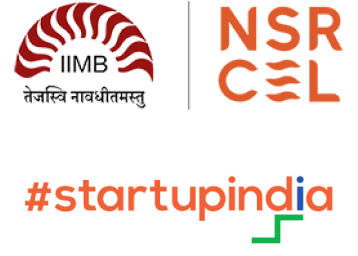As a hiring manager, you might be familiar with skills-based hiring – hiring talent based on a candidate’s skills and expertise over their degree, resume, or connections.
But you might not know exactly which roles skills-based hiring works best for or the challenges of hiring for each position.
If so, you’re not alone.
Some 90% of Indian graduates lack the necessary skills for professionals. This means HR and hiring managers everywhere need to reset their markers for candidate success.
And what better way to start than digging into the different roles and their implications for skills-based hiring?
In this article, we’ll examine why skills-based hiring is rising and which roles it’s suitable for. This will enable you to hire quality candidates based on your understanding of their acquired experience and skill sets.
Specifically, we’ll look at the following:
- How skills-based hiring works when recruiting for different roles
- Skills gaps, including whether and how skills-based hiring is used to fill the role
- The prevalence of skills testing for each position and the benefits of using it
- The challenges associated with using skills-based hiring for certain roles
- Role-specific tests and how to apply them
Where is skills-based hiring on the rise?
From our research, we found that skills-based hiring is particularly popular in remote and hybrid working environments, being used by 81% of hybrid companies and 75.5% of fully remote businesses.
It’s also taken off in larger corporations and the tech sector owing to the sheer volume of applicants and the specific technical skill requirements.
Understandably, it’s less common in industries that require specific credentials apart from a traditional college degree, such as state-licensing requirements, health-specific certifications, or specific, measurable skills in fields like medicine, law, and education.
But skills-based hiring is quickly gaining ground: A staggering 56% of HR professionals claim that candidate scores on skills assessments are equally as or more critical than traditional criteria in hiring decisions.
By focusing on position-applicant alignment, you can hire candidates who are a better fit for their roles, which means they’ll be better placed to succeed.
In fact, 65% of HR professionals say the quality of their organization’s hires has improved thanks to their use of assessments. And you get a competitive advantage by reducing employee turnover while improving employee happiness, diversity, and productivity.
The benefit of skills-based hiring is that it’s likely to result in improved recruitment processes regardless of sector or industry. However, it is particularly useful for medium to large businesses that typically recruit a number of new candidates annually. This approach can speed up the hiring process for organizations that adopt it, as well as identify talented individuals that may have otherwise been passed over in favor of candidates who appear to have better education or work experience on paper.
Skills-based hiring can speed up the hiring process for organizations that adopt it, as well as identify talented individuals that may have otherwise been passed over in favor of candidates who appear to have better education or work experience on paper.
To better understand how to apply skills-based hiring across roles –and its benefits, let’s look at some positions that work well with skills-based hiring.
6 roles that are suitable for skill-based hiring
With skills-based hiring, it's becoming a popular trend to adopt the concept of "skills ontology." This involves determining the specific skills required for a particular role and evaluating the connections between those skills. This allows for the creation of a standardized language or classification system for skills across different jobs or platforms. By doing so, it's possible to establish a comprehensive vocabulary and understanding of skills across various types of employment, which can lead to improved and more diverse hiring outcomes.
- Jobs That Require Mass Hiring
When it comes to mass hiring for positions such as call center employees and other low-complexity jobs, skills are often more important than how well the candidate matches the job description. However, these types of jobs often experience high employee turnover due to skill deficiencies and mismatched expectations and abilities.
The challenges of mass hiring may include:
- Overwhelming number of applications
- Poor candidate experience
- Inconsistent company or organizational branding
When managing a large volume of resumes, you need a system for evaluating and organizing applications. This is where pre-employment testing platforms and skills-based hiring can help.
Skills-based hiring is becoming more popular for mass hiring as it allows for identifying the candidates' skill sets early in the application process, giving you more time to interview the most suitable candidates.
Using testing platforms can streamline the process and make it easier to manage applications.
For mass hiring, you may consider the following skills tests:
Or, you could ask the candidate to complete a take-home assessment that resembles the job's responsibilities. For example, have a call center representative perform a mock call and rate their performance based on your standards or the top-performing representatives in your company.
- Skills-Based Hiring for Technical Roles
Tech companies are leading the way in adopting skills-based hiring, putting a focus on skills assessments that gauge both technical skills and soft skills, such as critical thinking. Organizations like HubSpot have even introduced micro-credentials, which acknowledge specific skills and can be collected in a digital portfolio.
Skills-based hiring is particularly beneficial for technical roles as it provides a quicker and more accurate way to determine a candidate's technical abilities. A prestigious university education does not necessarily guarantee that a candidate has the necessary technical skills for the job.
The IT and high-tech industries are among the most likely to utilize skills-based hiring, as there is a shortage of skilled talent and degrees do not always reflect a candidate's technical proficiency.
To assess technical skills and differentiate between candidates, consider using the following skills tests in your hiring process:
- CSS test
- Product management test
- Front end development test
- React JS test
- Solidworks test
- MATLAB test
- Critical Thinking test
- Analytical & Mathematical thinking test
- 16 Types test
Using these tests, you can identify candidates with strong technical abilities and gain insights into their motivation and decision-making processes.
- Hiring for Sales and Marketing Roles
Sales and marketing roles are in high demand, and therefore, skills-based hiring has become more prevalent for these positions. Both hard and soft skills are emphasized in the hiring process, with 86% of marketing companies using skills-based hiring.
However, it is still common for job listings for these occupations to require resumes and educational qualifications, which can make choosing appropriate skills tests a challenge.
One of the biggest challenges in hiring for these roles is creating scenarios that accurately reflect the job requirements. For example, when hiring a digital marketing channel manager, a screen-sharing session could be used to ask the candidate to set up a Google Ads campaign from scratch, to assess their skills.
To better evaluate candidates, some skills tests that align with the demands of these roles include:
- Google Ads test
- B2B Sales test
- English language test
- SEO test
- Digital Marketing test
- MS Office tests
- Big 5 (OCEAN) test
- 16 type test
- Entry-Level Candidates
Hiring for entry-level positions presents a unique opportunity for managers, as these candidates may lack extensive experience or a lengthy resume. Rather than focusing on hard or technical skills, you can assess entry-level hires, such as graduate trainees, for their soft skills and mindset.
Assessing soft skills like communication, a willingness to learn, work ethic, and problem-solving skills, can be a challenge when using skills-based hiring methods. However, it also provides an advantage, as you can find employees with the right attitudes and perspectives.
Soft skills are often more valuable than specific hard skills, especially as the most in-demand soft skills for employers in 2021 were resilience and adaptability, critical thinking and analysis, reasoning and problem-solving, leadership and social influence, and creativity and originality.
By using skills-based hiring, you can identify new hires who have the desired soft skills and who align with your company culture. Then, they can learn and develop their hard skills and gain work experience on the job. This approach allows you to bring in the workforce you need while fostering the growth and development of your new hires.
- Service roles
Skills-based hiring is gaining momentum for service roles like hotel receptionists and managers and in the service industry at large. More than a third of the companies we surveyed have adopted skills-based hiring in the past two years.
This is because, unlike production or manufacturing, the service industry doesn’t rely on selling a product. Because they sell services to people, it makes sense to test service workers’ ability to handle face-to-face interactions and communication and the technical skills required to run internal software or machinery.
Skills-based hiring lets you find competent workers who might have yet to gain previous service-based experience but have the skills and mindset necessary to succeed.
It also widens the pool of potential you can access and lets you evaluate the skills gap in employees hired using more traditional methods. For example, you can assess gaps in soft skills – like communication and customer empathy skills aren’t visible on a resume.
Here are some skills-based tests you can use when hiring for service roles:
- Administrative roles
Since businesses consider administrative roles relatively easy to test, it’s more common to see skills-based hiring in administrative positions.
It’s also no secret that most organizations deem office-based roles a good fit for pre-assessment testing instead of fieldwork or labor-intensive functions.
And although skills-based hiring does help you find the best talent for the role, it can be challenging to determine the right mix of soft and hard skills needed by, let’s say, an office administrator or secretary.
However, taking a skills-based approach to hiring can help you weed out candidates who claim they have acute critical, organizational, or people skills on paper but don’t in practice.
It also opens you up to candidates whose past experiences and skill sets better translate into organizational performance — even without a resume to prove it.
Here are some skills tests you can use to hire for administrative-based roles:
- MS Word test
- MS Excel test
- Accounting test
- Marketing tests
- Aptitude tests
- Communication test
- Customer Service test
By using these tests, you’ll get a more confident and capable workforce that knows it has what it takes to succeed.
Skills-based hiring: A key to finding the right fit for every position
Skills-based hiring makes it easier to match new hires with the skills and daily tasks needed for your company's success, positively impacting company culture. This method of hiring is becoming increasingly popular and offers benefits for both employers and employees in all types of roles.
Some roles are particularly well-suited for skills-based hiring, including those with high hiring volume, technical, sales and marketing, entry-level, service, and administrative positions.
By using skills-based hiring to find the best talent based on skills rather than background or education, you can build a skilled and dedicated workforce that positively impacts your hiring return on investment. If you haven’t tried yet, try Merreo Pre-hiring assessments. Don’t worry, the first 10 candidates are on us.





